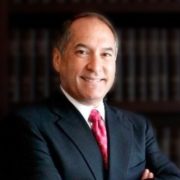Under this agreement, qualified applicants would earn ‘American wages.’ With business and labor now in agreement, Congress is more comfortable moving forward with legislation.
The pathway to legalization and citizenship suddenly looks brighter for the 11,000,000 illegal immigrants in the US. This is because the major organizations representing business and labor (US Chamber of Commerce and the AFL—CIO) reached an agreement on a proposed guest–worker program that would enable tens of thousands of people working in “low – skilled” jobs to qualify for a new “W visa”.
Previous attempts by Congress to come up with a guest worker program failed because labor unions were worried that a flood of low—wage immigrant laborers would take away jobs from Americans. Under this agreement, qualified applicants would earn “American wages.” With business and labor now in agreement, Congress is more comfortable moving forward with legislation.
Although this is still only a proposal (and not a law), some of the details about the W visa are as follows:
– The W visa would enable employers to quickly petition for workers in lesser skilled jobs, including caregivers (nursing homes), hospitality industry (hotels), janitorial, retail, construction, and other industries. (So you know, right now there is a category of green cards for what is called “other” or “unskilled” workers. But it takes seven or more years to get a green card.) It may be that these types of job positions could qualify for the W visa. However, it remains to be seen which specific jobs would qualify for this W visa.
– The W visa would not be considered a “temporary” visa, as these workers would have the ability to seek permanent resident status after one year. (Most other visas with a letter, such as B, F, H, or L, are considered temporary or non-– immigrant visas. So it would seem that the W visa is a pathway to permanent residency, similar to the K or fiancée visa.)
– The program (or availability of W visas) would begin on April 1, 2015, unless there is a need to extend the start date.
– During the first year, 20,000 visas would be available for workers, which would go up to 35,000 in the second year, then 55,000 in the 3rd year, and 75,000 in the 4th year, depending on the need and employment statistics. However, each year there would never be less than 20,000 nor more than 200,000 visas available.
– Unlike current temporary worker programs (where the worker cannot move from employer to employer, and has no path to permanent US residence), the W visa would enable people to change jobs and to seek permanent residency (green cards).
I again want to emphasize that this is only a proposal. It is not a law. So, don’t book a consultation with me next week, asking if you are qualified, and how do you apply right now. The details still need to be worked out and agreed on, and some of the details could change. In fact, Sen. Marco Rubio sent a letter to the Senate Judiciary Committee, cautioning everyone to “slow down,” and he is pushing for an in depth hearing process, and cautioning against a “rush to legislate.”
However, this is truly an encouraging development for immigration reform and for all of those people in the US hoping to achieve the American dream. I know that there are many, many Filipinos who are caregivers, work at hotels as housekeepers, and hold other such job positions. This new guest – worker proposal could offer them new hope, as well as a pathway to a green card and citizenship. I will continue to keep you updated as developments arise. Let’s keep our fingers crossed and pray!
* * *
Michael J. Gurfinkel is licensed, and an active member of the State Bar of California and New York. All immigration services are provided by, or under the supervision of, an active member of the State Bar of California. Each case is different. The information contained herein including testimonials, “Success Stories,” endorsements and re-enactments) is of a general nature, and is not intended to apply to any particular case, and does not constitute a prediction, warranty, guarantee or legal advice regarding the outcome of your legal matter. No attorney-client relationship is, or shall be, established with any reader.
WEBSITE: www.gurfinkel.com
Call Toll free to schedule a consultation for anywhere in the US:
(866)—GURFINKEL
Four offices to serve you: LOS ANGELES · SAN FRANCISCO · NEW YORK · PHILIPPINES






